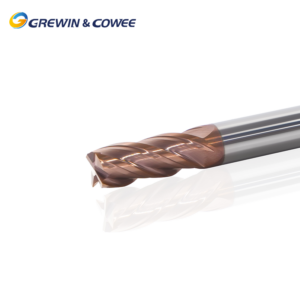Table of Contents
ToggleEnd Mills
When it comes to machining metal, choosing the right tools can be the difference between a successful project and a costly mishap. Among the essential tools in a machinist’s arsenal are end mills for machining metal. These versatile cutting tools are designed to remove material from a workpiece through straightforward rotational movement. However, not all end mills are created equal. In this article, we will explore how to select the right end mills for your specific metalworking needs, guiding you to make informed decisions that enhance your machining operations.
Understanding the Basics of End Mills
End mills for machining metal are designed for various cutting tasks and can be used for milling, drilling, and slotting. Unlike drills, which primarily create round holes, end mills typically have cutting teeth on both the end and the sides. This design allows for more complex shapes and profiles to be created on the workpiece. It’s essential to understand the specific applications and materials involved before picking the right end mill.
For instance, if you are working with aluminum, a two-flute end mill with a high helix angle may be perfect for creating a smooth finish and fast chip removal. However, if you’re dealing with harder metals like titanium, a four-flute end mill made from cobalt or carbide might be more suitable for both strength and durability. By grasping these basics, you can navigate this vast array of options efficiently.
Factors to Consider When Choosing End Mills
1. Material of the End Mill
The material of the end mill is one of the most critical factors influencing its performance. The most common materials for end mills used in machining metal include High-Speed Steel (HSS), Cobalt, and Carbide.
High-Speed Steel (HSS): HSS end mills are cost-effective and sufficient for softer materials. They can take heat well but may not hold up against tougher materials.
Cobalt: These end mills are more rigid than HSS and have better heat resistance. They are recommended for more challenging materials like stainless steel.
Carbide: Carbide end mills are the hardest and most durable but come at a premium price. They are ideal for high-speed applications and machining tough metals.
When selecting end mills for machining metal, consider the price-to-performance ratio that fits your budget and needs.
2. Flute Count
The number of flutes on an end mill directly affects its performance in machining metal.
Two-Flute End Mills: These are often used for softer materials, allowing for faster chip removal, thus reducing clogging.
Four-Flute End Mills: These are designed for harder materials and provide a better finish. While they may not remove chips as quickly, they offer heightened stability and strength.
Choosing the correct flute count will depend on the material being worked on. For example, if you are looking to create intricate features on aluminum, a two-flute end mill can effectively clear chips. Conversely, if you are machining a hard steel part, a four-flute end mill provides the needed rigidity and can achieve tighter tolerances.
3. End Geometry
The geometry of the end mill can greatly influence the machining process for metals. This includes considerations such as corner radius, cutting edges, and overall shape.
For example, square-end mills are ideal for flat-bottomed slots, while ball-end mills are essential for contouring and creating curved surfaces. If your project requires fillets or rounded edges, a ball-end mill is the best choice. If you need to create pockets or features with precise dimensions, opt for a square-end mill.
The Benefits of Choosing the Right End Mills
Selecting the appropriate end mills for machining metal comes with numerous advantages. First and foremost is **improved efficiency**. Using the right end mill can significantly reduce machining time, allowing you to complete projects faster without sacrificing quality. For instance, if you switch from a dull two-flute end mill to a sharp four-flute carbide end mill while working on steel, you may notice a decrease in production time alongside excellent finish quality.
Moreover, using specialized end mills can minimize tool wear. For example, end mills designed specifically for hard materials are engineered to endure higher levels of stress and heat, ultimately leading to longer service life. A tool that lasts more than 50% longer can greatly enhance productivity and cost efficiency.
Application Areas for End Mills
End mills for machining metal are utilized across various industries. For instance, in the aerospace field, where precision is paramount, specially designed end mills are used to machine components such as engine mounts and cockpit structures. In the automotive industry, they excel in creating key features in milled blocks and crankshafts.
Moreover, in the tooling industry or custom prototyping, end mills serve as the backbone for creating specialization tools. The choices here have significant ramifications, from cost to performance outcomes. Understanding these applications will guide you in choosing specialized end mills that can cater to those unique needs.
Conclusion
In conclusion, choosing the right end mills for machining metal is vital for achieving optimal efficiency, precision, and cost-effectiveness in your metalworking operations. Understanding the materials, flute count, and end geometry are critical factors that will aid you in making informed decisions. By selecting the right end mills, you can improve your machining outcomes, extend tool life, and ultimately enhance the quality of your work.
Remember, whether you’re diving into the complexities of aerospace components or crafting intricate automotive features, the right end mills for machining metal can make all the difference in whether your project succeeds or faces challenges. As you embark on your next machining endeavor, take the time to thoughtfully consider these choices, and you will reap the benefits of your efforts in the final results.
